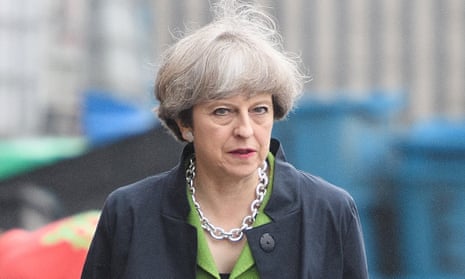In language echoing Yes Minister’s Sir Humphrey Appleby, leading pollsters have described YouGov’s “shock poll” predicting a hung parliament on 8 June as “brave” and the decision by the Times to splash it on its front page as “even braver”.
It is certainly rare for a polling company to produce a seats prediction. They usually leave that to psephologists and political scientists. But it is even more unusual for a company to suddenly employ a new polling model 10 days before a British general election.
Deborah Mattinson, founder of Britain Thinks, tweeted: “YouGov not just at odds with other pollsters but also with their ex top honcho @PeterKellner1 who predicts Con lead 66 seats … brave stuff.” Martin Boon of ICM added: “Splashing this on the front page is even braver than @YouGov doing it in the first place.”
YouGov not just at odds with other pollsters but also with their ex top honcho @PeterKellner1 who predicts Con lead 66 seats...brave stuff! https://t.co/8h90zO7TtA
— Deborah Mattinson (@debmattinson) May 31, 2017
Splashing this on the front page is even braver than @YouGov doing it in the first place. https://t.co/rUQsumnAvT
— Martin Boon (@martinboon) May 30, 2017
YouGov itself acknowledges that its methodology is “controversial”. Indeed it is, for it is not an opinion poll in the traditional sense at all but a seat by seat “estimate” projected into a notional national result.
Its conclusions are certainly startling. The Tories are in line to lose 20 seats, giving them 310, and Labour is set to gain 30, giving it 257 and leaving Theresa May 16 seats short of an overall majority and staring at a hung parliament. That sounds as firm a prediction as any.
But as Stephan Shakespeare, YouGov’s chief executive, notes in an accompanying analysis, that is only a central projection that “allows for a wide range of error” and he concedes: “However, these are just the midpoints and, as with any model, there is leeway either side. The Tories could end up with as many as 345 and Labour as few as 223, leading to an increased Conservative majority.”
He goes further and says that “it would take only a slight fall in Labour’s share and a slight increase in the Conservatives’ to result in Mrs May returning to No 10 with a healthy majority.” The Times says the projection means the Tories “could get as many as 345 seats on a good night … and as few as 274 on a bad night”. That is a pretty wide range.
All pollsters put careful caveats in their results commentary, insisting they are just snapshots of public opinion, but this estimate is clearly being presented by the Times as a prediction of next week’s result.
The methodology involved is described as “multi-level regression and post-stratification” analysis and is based on a substitute for traditional constituency polling, which it regards as “prohibitively expensive”. Shakespeare claimed YouGov tested it during last year’s EU referendum campaign and it produced leave leads every time. What a shame YouGov did not feel like sharing it with voters while their own published referendum polls showed a remain lead right up to polling day.
YouGov, like many polling companies, has a mixed track record. It notably gave the yes campaign an electrifying and ultimately erroneous lead during the Scottish independence referendum and its 2015 general election eve poll had Tories and Labour neck and neck on 34% when the Conservatives won with a clear seven-point lead the next day.
In an industry already suffering from an existential crisis of public confidence it is indeed a “brave” decision to come up with this one 10 days before a general election and promise to publish its results several times more before polling day.
